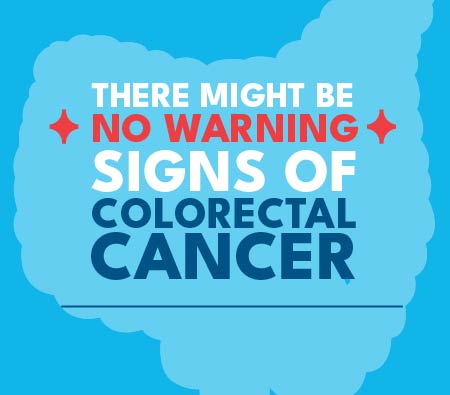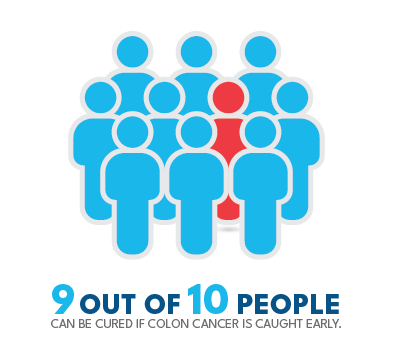Women's Health Services:
Gynecology & Obstetrics
Women's health should be taken seriously, and at Variety Care we make it easy for women to get the care they need. Annual health check-ups, women's health screenings and consultations with professionals about women's health concerns are just a few of the services we offer. This means that you can be confident that your health is in good hands. We are here to help with a full range of women's health services, from annual exams to specialty care, including obstetrics, pregnancy care and newborn care.
If you're looking for compassionate, professional care for women, Variety Care is the place for you.

GENERAL CARE
We offer comprehensive care for women of all ages, from puberty through menopause and everything in between. We will provide you with personalized support so your needs are met without compromising on quality or compassion. Receive the support you need to feel confident and in control of your health.
Have peace of mind when it comes to your health.

PREGNANCY CARE
When you are pregnant, it is important to have access to quality prenatal care. This includes both routine checkups as well as education and resources to help you manage your pregnancy. Our OBGYN providers are specially trained in women's health and will work with you to ensure that you have a healthy pregnancy.
We offer no-cost pregnancy tests, prenatal care, and support labor and delivery.

POSTPARTUM CARE
After giving birth, the female body goes through many changes. Women who have recently given birth should visit with an OBGYN to ensure they are healing properly and taking the necessary precautions to protect their health. We also provide helpful WIC services for women and children and preventative care for women that had gestational diabetes.
Health is our top priority. Receive guidance on post-partum care and resources to assist you and your baby.
What is an obstetrician-gynecologist (OBGYN)?
An obstetrician-gynecologist (OBGYN) is a doctor that specializes in female reproductive health and wellness. Gynecologists focus majority of their practice on women's reproductive organs, which include the ovaries, uterus, vagina, cervix, fallopian tubes
and breasts. Other areas of expertise are urinary tract infections, fertility and pregnancy.
Women who are experiencing issues with their reproductive system should see a gynecologist for help rather than seeing a general doctor or other specialist. This includes experiences of any abnormality in menstrual cycle, such as irregular bleeding.
Obstetrics is the branch of medicine that deals with pregnancy, childbirth and postpartum care. This area of medicine starts as soon as the female becomes pregnant up until one year after delivery, or post-partum. We also provide services for pregnancy and newborn care.
Our caring women’s health team provides a full line of affordable, quality obstetrical and gynecological care.
Services include:
- care for adolescents and adults
- well-woman annual exams
- managing menopause
- evaluation of irregular bleeding
- pap smears
- breast health / breast cancer screening
- bone health & osteoporosis
- family planning services
- birth control
- evaluation of infertility
- no-cost walk-in pregnancy testing at all locations
- pregnancy care / newborn care
- STD screening and treatment
- Ultrasounds
- postpartum care
You Can Prevent Cancer - Get Colorectal Screenings
Colon Cancer is the Second Most Common Cause of Cancer Death
Colorectal cancer, commonly known as colon cancer, is a type of cancer that affects the large intestine and rectum. It occurs when abnormal cells in the lining of these organs grow out of control, forming a tumor. If not detected and treated early, colon cancer can spread to other parts of the body and become fatal.

According to the World Health Organization, colorectal cancer is also the third most common cancer worldwide. This statistic highlights the seriousness of this disease and the need for increased awareness and early detection.
One of the reasons why colon cancer is so deadly is because it often goes undetected until it has reached an advanced stage. This is why regular screening and early detection are crucial in improving survival rates. We will give an easy breakdown of every basic information you will need to know about colorectal cancer.
What is Colorectal Cancer?
Colorectal cancer is a type of cancer that begins in the colon or rectum, which are part of the large intestine. This type of cancer can affect both men and women, and it is the third most diagnosed cancer in both genders.
The main cause of colorectal cancer is the growth of abnormal cells, known as polyps, in the lining of the gastrointestinal tract. These polyps typically start out as benign, but over time they can become cancerous depending on their type. This process can take several years, which is why early detection is crucial for successfully treating colorectal cancer.
Established patients may ask for a take-home colorectal screening test at any Variety Care location.
Find a Take-Home Colon Cancer Test Near You
Who is at High Risk?
Men and women ages 45 and above have a higher risk of developing colorectal cancer. One of the most effective ways to reduce the impact of colorectal cancer is through early detection. Colorectal cancer is highly treatable when caught early. However, the chances of survival decrease significantly if the cancer has spread to other parts of the body. This is why regular screenings are crucial for individuals at an increased risk of developing colorectal cancer.
Lifestyle and eating habits can also increase your risk of developing colon or rectal cancer. Individuals that have a diet that includes high consumption of the following can also be at risk.
- Red meat
- Saturated fat
- Alcoholic drinks
- Processed meats
According to the CDC, some people may need to get screened earlier than 45. Individuals with the following conditions should screen for colorectal cancer before age 45.
- Inflammatory bowel disease
- A personal or family history of colorectal cancer
Pick-up a take home colorectal cancer screening kit at any Variety Care location.
Symptoms of Colorectal Cancer
Colorectal cancer can go undetected for many years, but there are some symptoms that may appear. The American Cancer Societies states that symptoms of colon or rectal cancer may include:
- Change in bowel habits, such as diarrhea, constipation, or narrow stool
- Rectal bleeding
- Blood in stool, this can cause the stool to appear dark brown or black
- Abdominal cramping
- Weakness or fatigue
- Unexpected weight loss
Colon cancer can cause bleeding in the digestive system, resulting in unintentional weight loss. One form of testing for colon cancer or rectal cancer is to test stool for blood. Contact your primary care provider if you have any concerns about colon or rectal cancer. You may also visit your closest Variety Care health clinic to ask for a take-home colorectal cancer test.
Variety Care has 18 locations in the Oklahoma City metro area, including OKC and Norman. You may find a colon cancer testing kit at any of our locations.
What to Do If You Have Colorectal Cancer Symptoms
If you are experiencing symptoms that could be related to colorectal cancer, it is important to take action as soon as possible. While many of these symptoms may have other, less serious causes, it is always best to get checked out by a medical professional.
Here are some steps you can take when facing potential colorectal cancer symptoms:
Step 1: Do Not Ignore Your Symptoms

Nine out of ten people can be cured of colon cancer if caught early. It is important to take action if you are experiencing any symptoms that could be related to colorectal cancer. These changes may include changes in bowel movements, abdominal pain or discomfort, or blood in your stool.
While these symptoms may have other causes, they should always be evaluated by a doctor. Early detection and treatment can greatly improve your chances of a positive outcome.
Step 2: Talk to Your Doctor or Provider
Contact your primary care provider and inform them of your symptoms. Your provider will conduct and evaluation, perform any necessary tests, and make a diagnosis if needed.
Step 3: Get Screened
If your provider may recommended further testing, such as a colonoscopy or stool test. During a colonoscopy procedure, a flexible tube with a camera at the end is inserted into the rectum to examine the lining of the colon and rectum. This allows doctors to identify any abnormal growths, including polyps, and remove them before they can potentially turn into cancer.
There are other screening tests available for colorectal cancer such as a take home colorectal cancer test kit. Variety Care health centers have colon cancer test kits. This is a fast and easy way to screen for colorectal cancer.
Stop by one of our 18 locations and ask a staff member for a colorectal cancer testing kit. You should consult with your PCP depending on the results. Discuss with your doctor which screening method is best suited for you based on your age, family history, and overall health.
Again, colorectal cancer may not express symptoms for years so it’s best to get screenings to catch it in its early stages.
How to take a colorectal cancer screening test
- Stop by your nearest Variety Care health center
- Ask the front desk for a colon cancer screening test. It can be a FIT test or Cologuard.
- Take the test at home. Follow the instructions on the box.
- Mail the test back to us. The test kit includes a prepaid stamp so you don't need to pay for postage.
What if I’m Younger Than 45 and Expressing Colorectal Cancer Symptoms?
Even if you're younger than 45, it's important to take any changes in bowel habits seriously and get them checked out by a doctor. If you or a loved one is expressing symptoms, contact your provider and ask for a colorectal cancer screening. Colorectal cancer is commonly found in people older than 45. However, people younger than 45 that are expressing symptoms should consult with their primary care provider.
If you are experiencing symptoms and your provider dismsess the due to your age, ask for a second opinion. Advocate for yourself because early detection is easily treated and often curable.
Find a Variety Care health clinic closest to you and ask a staff member for a take home colorectal cancer screening test. It’s fast, easy, and comes at no cost.
Additional Colon and Rectal Cancer Screening Resources
- Colon Cancer Screening Cost: https://health.gov/myhealthfinder/doctor-visits/screening-tests/get-screened-colorectal-cancer#take-action-tab
- Colon Cancer Screening Video Explanation: https://www.okddsi.net/colon-cancer-screening
- Oklahoma Colorectal Cancer Screening Statistics: https://www.fightcancer.org/colorectal-cancer-screening

